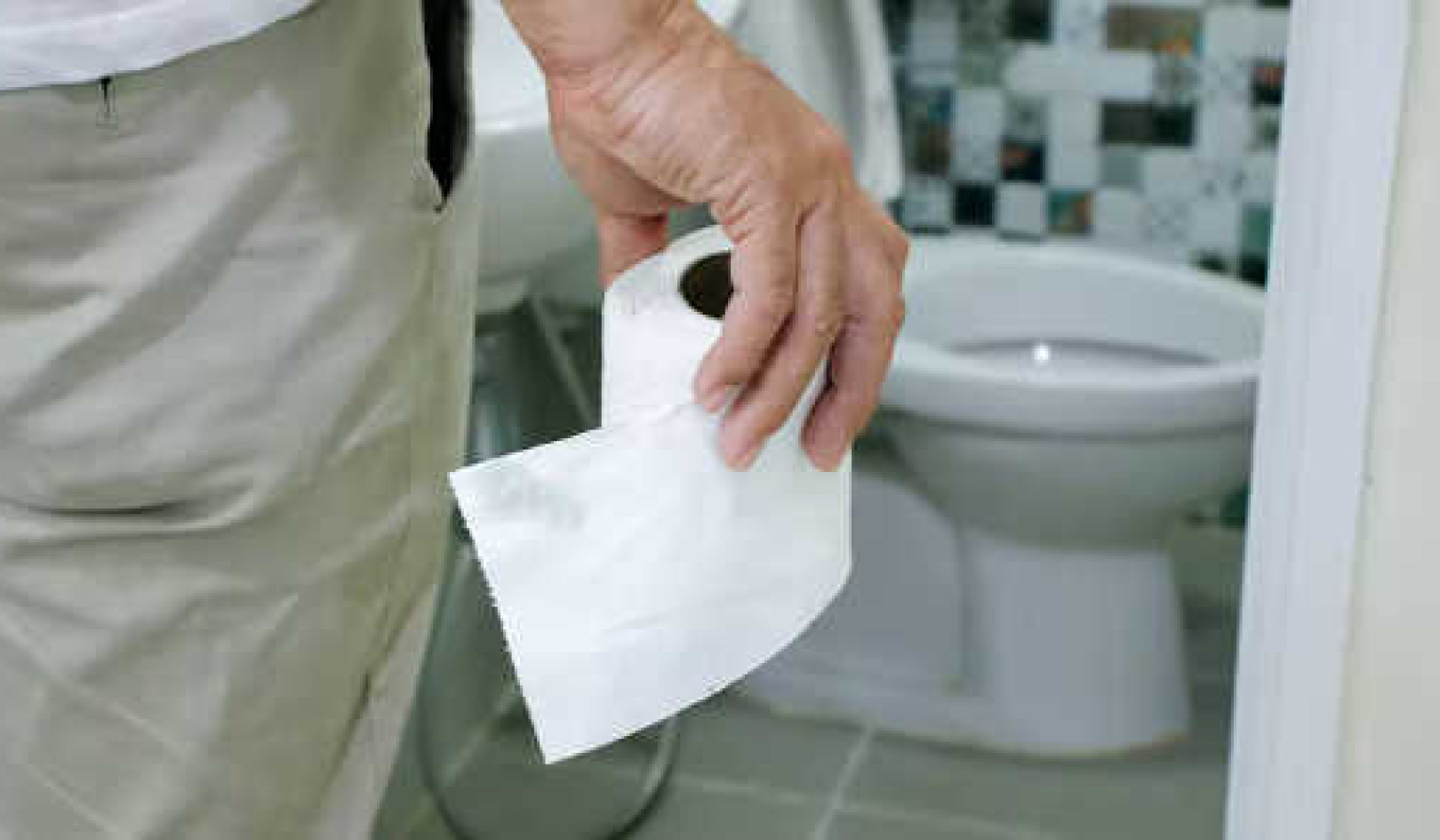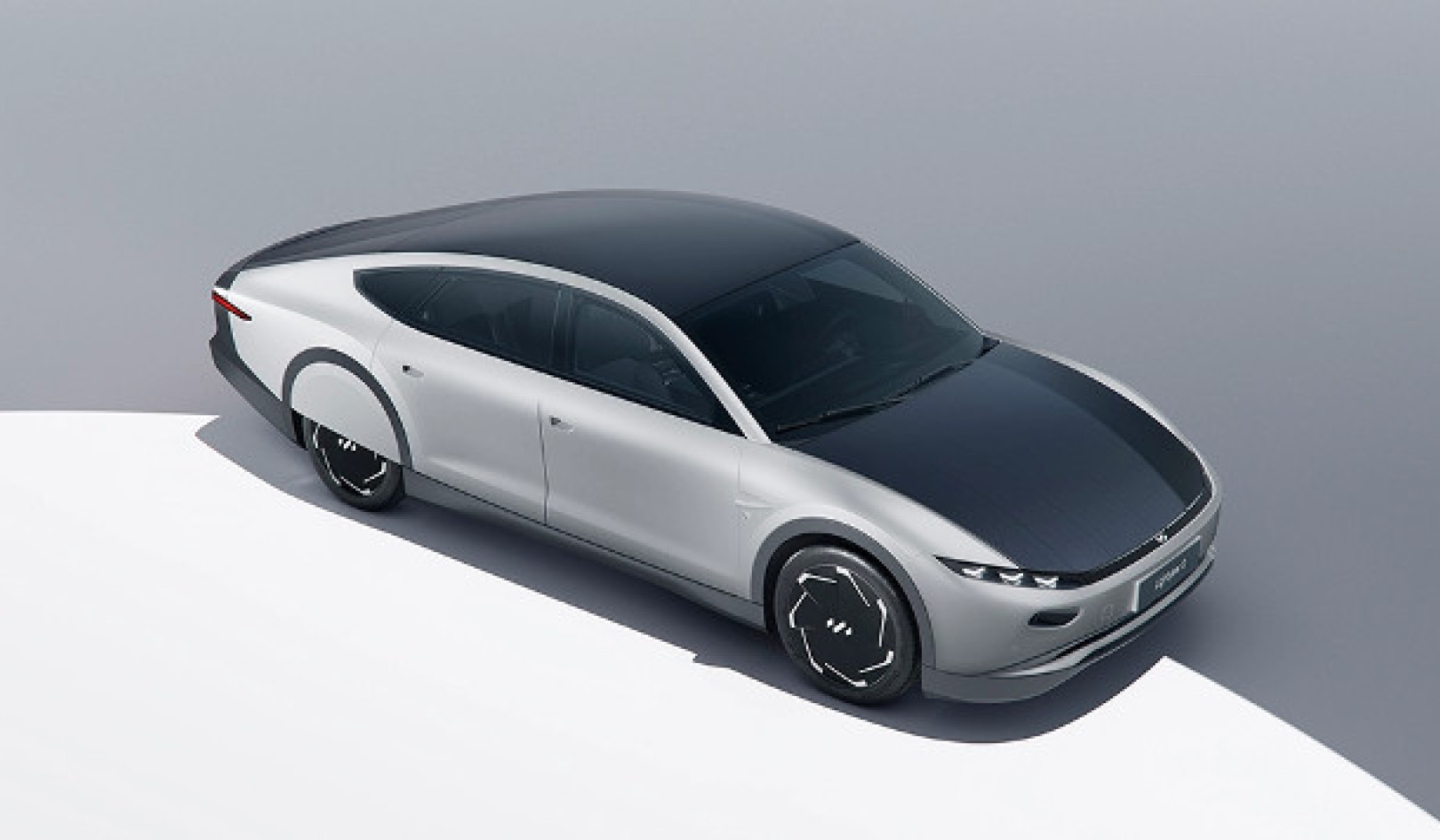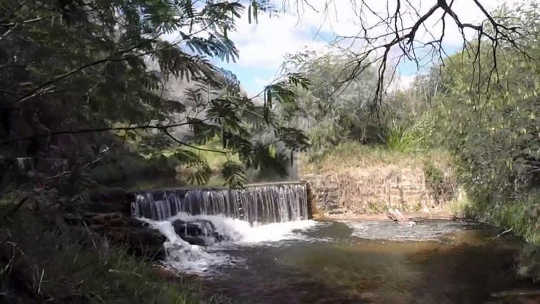 It’s now possible to experience virtual walks through nature – like this video, for example – but can that ever match the real thing? Video screenshot, sounds from the core/YouTube
It’s now possible to experience virtual walks through nature – like this video, for example – but can that ever match the real thing? Video screenshot, sounds from the core/YouTube
Nature is good for your health. Perhaps predictably, the world of technology is now offering technical solutions that seek to replace the need for authentic nature experiences. But can innovations like poo transplants and virtual nature capture the deeper well-being that a connection to nature can deliver?
Nature comprehensively enhances the urban environments most of us live in. Its benefits include improving air quality, reducing nuisance noise and creating shady spots to escape hot weather.
Green spaces also encourage walking and outdoor activities, and provide useful places for people to socialise. Spending time in nature is a great way to simply rest and relax, providing some respite from our busy and crowded cities.
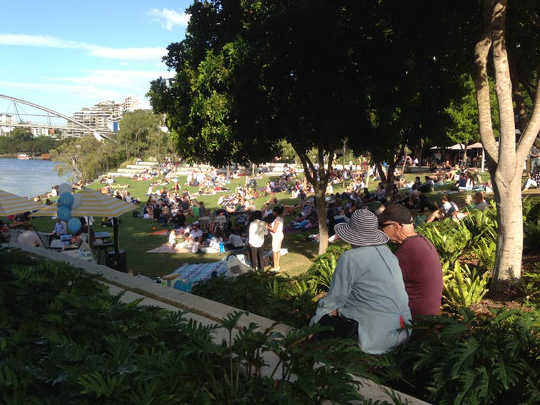
Urban nature areas are inviting places for people to socialise and relax. Anne Cleary
Boosting our immune system
Recent research shows that being outdoors in nature boosts our immune systems. Exposure to good bacteria in nature encourages diverse and healthy communities of bacteria in our guts. Some experts argue this is the main way that nature enhances our health and well-being.
But do we really need nature for healthy immune systems? Isn’t there a pill for that?
Well, yes actually. Poo transplants, or faecal microbiota transplantations, have emerged as a promising medical solution for enhancing the human microbiome. By swallowing a capsule of someone else’s poo, beneficial bacteria can be safely delivered to the recipient’s gut. No nature needed.
Restoring our mental health
Living in cities is draining. Nature can combat mental ill-health by reducing stress and restoring our ability to concentrate. The rhythms, patterns and sounds of nature effortlessly captivate and fascinate us. This allows our brain to escape the everyday distractions that demand and exhaust our “attention”.
But finding easily accessible nature, and the time to spend in it, can be a challenge. Today’s busy, urban lifestyles leave little time for much else.
The increasing sophistication and reducing costs of virtual reality technology may offer a solution. Ten minutes exploring a virtual forest reduces stress and increases happiness. As virtual reality systems become more widespread these may provide a convenient way of getting our daily “nature fix”.
A virtual nature walk through an Australian forest.
{youtube}0H9lbH1khDE{/youtube}
Is this really the nature we need?
Given the growing health woes associated with urban living, technological approaches could be an important part of the arsenal of solutions we need to reconnect people to nature and its health benefits.
In nature-deprived areas, virtual nature may be the only nature accessible to people. High-security prison inmates who watch nature videos report feeling less irritable and committed 26% fewer violent infractions. Poo pills may be similarly useful for astronauts and submariners.
However, these solutions are based on a narrow medical model: diagnosing and treating illness. This neglects the important role that nature plays in illness prevention, health promotion and greater well-being. Nature experiences are critical to the social, cultural, emotional and spiritual health of many communities and societies.
People who feel connected to nature tend to have greater psychological wellbeing. This can help foster thriving communities by underpinning a sense of achievement, personal growth and life purpose. Our connectedness to nature may be an important part of living a happy and meaningful life.
And urban nature is multifunctional. It provides many other benefits that can contribute more holistically to good health. Green space can help cool cities, slow peak stormwater flows and reduce air pollution. This can contribute enormously to reducing chronic and acute health burdens.
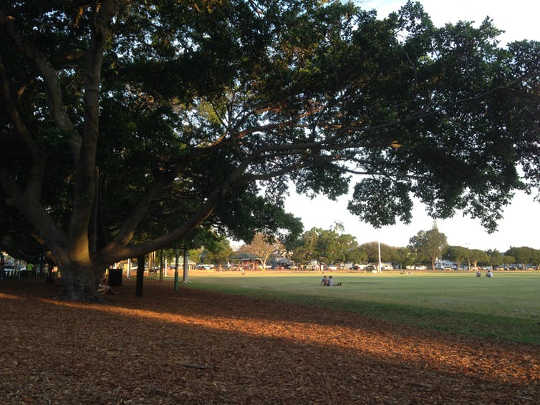 Urban nature provides a calming respite from our busy and crowded cities. Anne Cleary
Urban nature provides a calming respite from our busy and crowded cities. Anne Cleary
Specific kinds of nature, such as community and residential gardens, can provide fresh food and are a great source of physical activity for millions if not billions of people. Sports fields and linear green spaces (such as creek corridors) promote active recreation.
Green spaces are also places where people walk their dogs and meet other people. Beyond health, urban nature is habitat for many kinds of plants and animals, and is increasingly recognised for its role in biodiversity conservation.
![]() Interest in the health benefits of nature is growing rapidly. As we seek to harness the health-promoting potential of nature, we must be careful not to be tempted to focus only on “quick fixes”. Doing this neglects the importance of our human connection to nature – and the many different benefits that urban nature provides.
Interest in the health benefits of nature is growing rapidly. As we seek to harness the health-promoting potential of nature, we must be careful not to be tempted to focus only on “quick fixes”. Doing this neglects the importance of our human connection to nature – and the many different benefits that urban nature provides.
About The Author
Anne Cleary, Nature and Health PhD Candidate, School of Medicine, Griffith University and Dave Kendal, Research Fellow, School of Ecosystem and Forest Sciences and the Clean Air and Urban Landscape hub of the National Environmental Science Program, University of Melbourne
This article was originally published on The Conversation. Read the original article.
Related Books:
at InnerSelf Market and Amazon





















